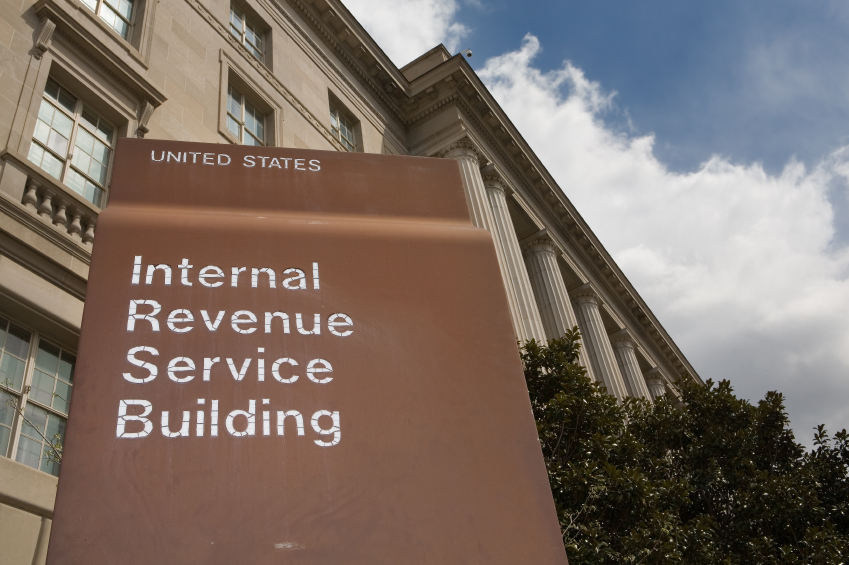By Alexis Leondis, Bloomberg Opinion (TNS)
Regardless of how you feel about the IRS—it’s dysfunctional, it’s underfunded, or both—there’s a basic point that’s hard to refute: The current system to ferret out wrongdoers is terrible. And in a move that will only make it worse, House Republicans voted Monday to block new funding allocated for the agency by the last Congress.
Consider that the tax gap, or the difference between what taxpayers owe and what they actually pay, averaged $496 billion from 2014 through 2016 (the agency’s most recent estimates). Even after audits and enforcement actions, the agency collected just 14% of total taxes owed but not paid, or $68 billion.
Part of the problem is that audits are barely happening for the people who owe the most. The agency just doesn’t have the money to conduct such audits, thanks to funding cuts over the last decade. For individual taxpayers making at least $1 million, the audit rate dropped from 8.4% in 2010 to just 2.4% in 2019. Almost all of the biggest corporations were subject to audits in 2010 compared with just half in 2019.
And when it does conduct audits, the IRS often picks the wrong targets or finds itself outmaneuvered by sophisticated attorneys. Almost 40% of audits of large corporations resulted in “no change” in 2019, meaning whatever had been reported on tax returns was substantiated, according to Congressional testimony by Janet Holtzblatt, a senior fellow at the Urban Brookings Tax Policy Center. About 38% of individual taxpayers with income in excess of $1 million either had “no change” or received a refund. That means the money spent on the audits didn’t recoup any revenue.
Even worse, audits don’t make much of a difference when it comes to future behavior. Studies have found some taxpayers become more brazen tax cheats after being audited because they think being targeted once reduces their chances of being investigated again.
Republicans use these facts to say the IRS is inept and shouldn’t get any more money to mishandle—thus one of House Republicans’ first orders of business was to nix the agency’s $80 billion in funding that had been approved by the Joe Biden administration. The GOP would allow the IRS to keep $4.8 billion to upgrade its aging technology, but without the $25 billion that had been allotted to support ongoing operations, that money would be rendered pretty useless.
Moreover, the Congressional Budget Office estimated this week that the House Republicans’ bill would cut government revenue by almost $186 billion and increase the budget deficit by $114 billion over the next 10 years.
Serious, long-term money for technology is the only thing that can help the IRS to overhaul its auditing system and have any chance at reclaiming the billions, if not trillions of dollars that go uncollected every year.
That’s because the key to better tax compliance isn’t going to come just from conducting more audits—it has to come from smarter use of taxpayer data. When the IRS can match tax filings to third-party data on income, such as a W-2 tax form sent to it from an employer, compliance rates are close to 99%. When it can’t, the compliance rate drops to 50%.
The biggest culprits of underreporting tend to be business owners. It’s difficult, not to mention time-consuming, for the IRS to verify what they’re reporting through its current audit process and technology system. And I’m not talking about mom-and-pop small business owners. A sizable chunk of the tax gap is estimated to come from sophisticated pass-through business owners (sole proprietors who report business income on their personal tax returns) who report well above $400,000 in income, according to Charles Rossotti, who served as IRS commissioner in the late 1990s.
Remember, better technology doesn’t mean the IRS will be getting its hands on any new data. This is all information the agency has on hand already, but doesn’t have the ability to sift through. Rossotti estimates the IRS currently has about 2 billion tax information reports on about $18 trillion worth of income, but uses just a fraction of that data due to funding constraints and outdated technology.
For example, the IRS has about 30 million K-1 forms, which show income from businesses structured as partnerships, totaling $1.2 trillion of income, but is basically blind to it. If it had the technology to systematically use the data on K-1s and match it with what’s reported on income tax returns, it could go a long way toward identifying tax scofflaws.
These sorts of changes would have a deterrent effect. If high-earning business owners and savvy tax planners know the IRS is starting to harness its data, they’ll change their behavior.
Yes, there will always be smart tax lawyers and accountants who will be able to manipulate the tax code and minimize their clients’ taxes in the grey area where it’s not quite evasion, but not quite fair, either. That’s the responsibility of lawmakers to address, not the IRS. But in the meantime, give the agency the money it needs to enforce the laws already on the books.
ABOUT THE WRITER
Alexis Leondis is a Bloomberg Opinion columnist covering personal finance. Previously, she oversaw tax coverage for Bloomberg News.
_____
©2023 Bloomberg L.P. Visit bloomberg.com/opinion. Distributed by Tribune Content Agency LLC.
Thanks for reading CPA Practice Advisor!
Subscribe Already registered? Log In
Need more information? Read the FAQs
Tags: IRS




